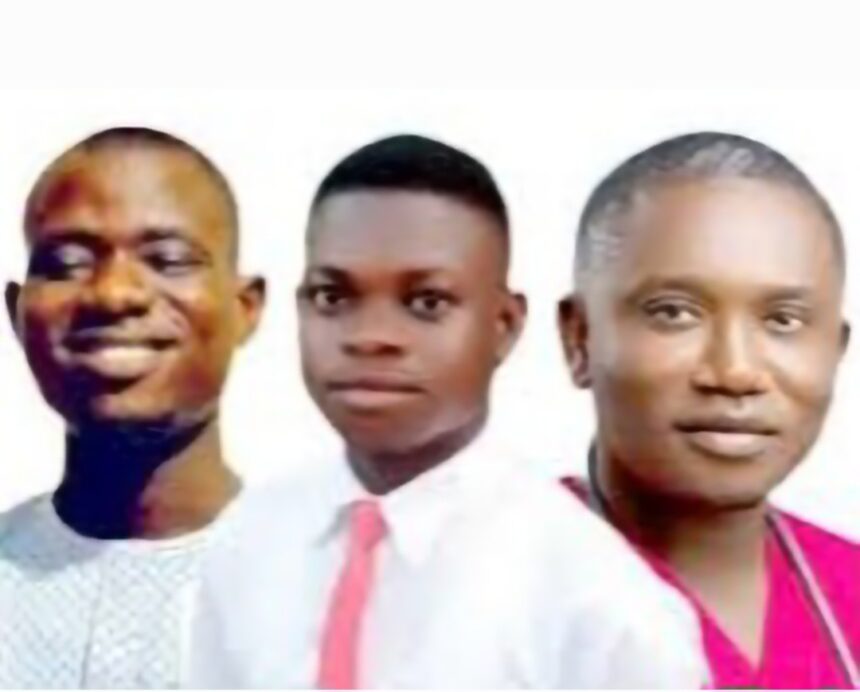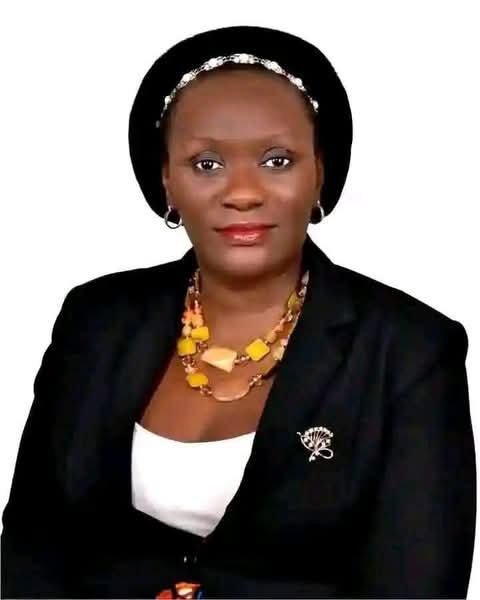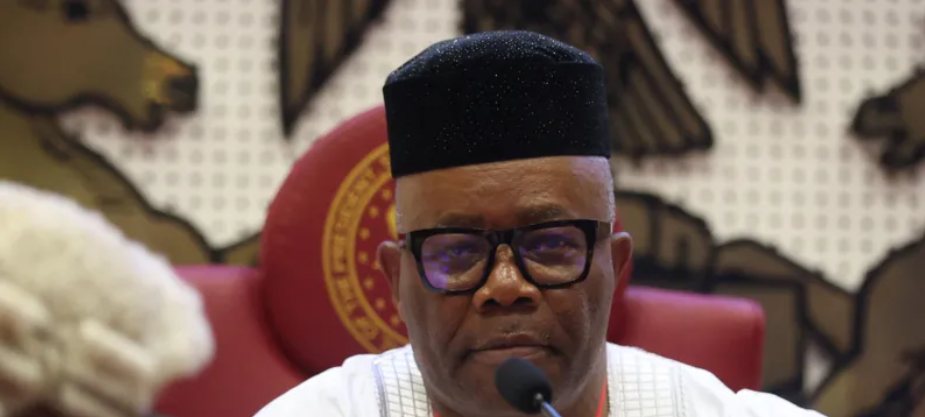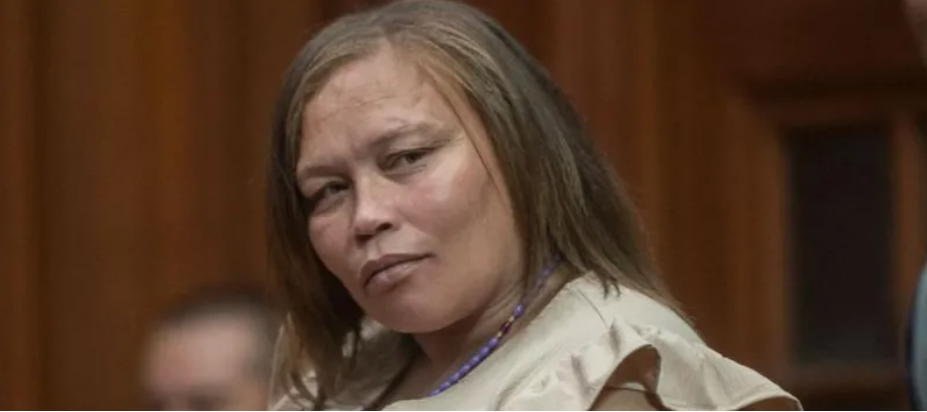
They rained bullets on our vehicle and another Sharon car that had five passengers. Clearly, they didn’t care if anyone got hit or we died.
“In fact, I learnt later that a woman in the other car was hit by a bullet. The bullets also hit our vehicle tyres and we were demobilised.
“They then ordered us to get down and lie flat on the ground. I initially thought they were policemen because most of them were wearing police uniforms. But on a second thought, it occurred to me that the police would not open fire on vehicles like that
They rained bullets on our vehicle and another Sharon car that had five passengers. Clearly, they didn’t care if anyone got hit or we died.
“In fact, I learnt later that a woman in the other car was hit by a bullet. The bullets also hit our vehicle tyres and we were demobilised.
“They then ordered us to get down and lie flat on the ground. I initially thought they were policemen because most of them were wearing police uniforms. But on a second thought, it occurred to me that the police would not open fire on vehicles like that.
“I actually wasn’t sure of what was happening until they asked us to start moving into the forest at gunpoint.”
Above were the words of Johnson Abalaka (real name withheld for security reasons), one of the ‘rescued’ 20 medical students of the University of Maiduguri and University of Jos, who were kidnapped on Thursday August 15 and held captive for nine days.
Clearly, the experience was such a tough and traumatic one for the youngster that he shuddered and shivered from mere recollection and had to be persuaded and repeatedly guaranteed anonymity before he agreed to speak.
Besides, they had been advised by parents, relatives, even their university authorities and the police, to steer clear of journalists.
Recalling the grueling experience, Abalaka said he could not exactly identify where they were ambushed, but said they were on their way from the University of Jos to Enugu for the Federation of Catholic Medical and Dental Students (FECAMDS) annual convention holding in Enugu, and had only just left Mechanic Village Otukpo when it happened.
“When the bullets hit our tyres and we could no longer move, they came from nowhere and started barking at us to come down. Almost immediately, they also started flogging us and ordering us to lie down. It was totally unexpected.
“We were forced to trek far into the forest. If I can recollect correctly, I think we trekked for 15 hours from that moment. We trekked the whole night and they only granted us few minutes of rest if they realised we were too tired to continue.”
Abalaka, who could not recall which was more gruesome between the hunger and thirst they were subjected to and the harrowing trekking in the forest, added: “On one occasion, we were made to trek from 6pm to 5am the following day. We trekked such distance about three times.
“I understood they had to keep moving us because they didn’t want to stay in one place and risk being tracked and cornered by the police.”
Asked what they were being fed to give them strength to trek such long distances, Abalaka hissed and laughed at the same time. Then he sneered: “Food? We were given raw cassava. Sometimes if we got lucky and they made fire, they roasted them. But more of the times, they gave them to us raw.”
For water, Abalaka said: “That was worse. It was so hard to get water that if we were able to as much as get a drop, we were glad.
“And what kind of water are we talking about? Usually when we complained so badly and they came to a river, they would just scoop with two or three empty bottles of soft drink and shove them at us.
“It was from those bottles that the 25 of us would drink until we came to another river or stream.
“In between, there were days we went without a single drop of water.”
So did he really eat the raw cassava? Couldn’t he reject or refuse?
“No, we couldn’t. Anything they gave us, they made sure we ate or at least you must collect and pretend to be eating.
“So usually, I collected, hold onto it and later give it to somebody else when they’re not looking. But the roasted ones, I ate. Usually that’s when they made fire after rainfall.”
Considering his frail nature, how did he manage to stay healthy under such condition?
Again, Abalaka’s sense of humour comes to the fore: “Healthy, was I healthy?” he asked, provoking laughter on both ends.
As far as he is concerned, he survived unscathed by God’s grace and protection. “How I managed to survive despite the horrible condition we were subjected to still beats my imagination.
“You won’t believe it, I didn’t have malaria despite the mosquitoes, and I didn’t have catarrh. All the nine days, we were in the open, trekking, standing, sitting and sleeping. Not a single moment under a proper shelter, except if you want to consider trees as shades.
“We were under the rain for six straight days and nights, because it rained constantly those six days. And we had nothing to warm ourselves.
“On two occasions, we came to an uncompleted three-storey structure. Somebody obviously was building an estate there.
“Each time we came there, we heard sound of moving vehicles. Clearly, it was close to a major road, but we didn’t have any idea where it was.
“We also met another gang there, and from the way they interacted, it was clear they knew each other and what business they were into.
“Somehow, I never heard or saw any of my colleagues and the people from the other vehicle complain of diarrhea or stomach pain despite eating raw cassava and drinking river water.
“Even the trekking we did bare-footed. Again, I thank God I was able to pull through despite the injuries under my feet.
“Most of us were not able to come out with our shoes during the stampede that followed the attack on our bus. And those who had theirs on had them confiscated once they saw that they were nice shoes.
“So none of us wore any shoes throughout the nine days.”
Asked if they were beaten, Abalaka scoffed, and then said “beating was a constant, especially whenever they just finished speaking with our parents and they didn’t get the response they expected.
Read Also: NNPCL seeks operations, maintenance contractor for Warri/Kaduna refiner
“They also beat us if we were not able to keep up with their pace.
“Usually, they dragged us like cattle, so they beat us the way they beat cattle to match their pace.
“Even when we matched their pace, they still beat us. I think they just wanted to subject us to traumatic treatment. I don’t know; it was hell!”
Get funny and get killed
Asked if he gave up hope while they were going through all this or they were hoping to be rescued, Abalaka said: “At a point, I thought it would never come to the point that I would be talking to anyone about it. Then there were occasions when I thought of escaping, as we were being led through the bush; but it wasn’t easy as they were very alert.
“Besides, they kept telling us that if anyone tried any mess or try to escape, he would be killed instantly. So I resigned myself to fate.
“However, the thought to escape kept coming to my mind, especially when we came to very dark places.”
In the earlier days, the impression outside was that the kidnappers allowed them to keep their phones, which was bizarre. How true?
Abalaka explained: “They didn’t have smart phones; that’s why. But later that same first day, they said we were being tracked through our phones, so they collected all the phones.
“They then took one of our SIM cards and inserted it in their phones. It was through that that they were calling out.
“Later, they told us they had thrown the phones away because carrying them along was dangerous for them.”
Of what ethnic group were these people and how much were they demanding?
“Clearly, they were Fulani people. We got to know that by their structure, dressing and the language they spoke.
“From what I heard, they were also demanding N50 million ransom. Like I said, they normally got incensed and beat us every time they came away from the phone with our people without any sign that the money was coming soon.”
Asked how many females were among the captives, Abalaka said: ‘There were four females; two from amongst us and two from the other vehicle.”
However, he said there was no sexual harassment of any sort on them.
Freedom
How did they regain their freedom? The police said they were rescued. Was there a gun duel between the police and the kidnappers? Did anyone get hurt?
At this point, Abalaka became a bit confused. First he said, yes, they were rescued. Later he said the kidnappers let them go and showed them the way to a rail line from where they were able to contact the police, who now came to pick them up.
“One of us was able to successfully hide his phone. So when they released us, it was his phone that guided us.
“It was when we got to the rail line that we called and told the police to follow the rail line and that they’d see us. Already, the stones along the rail line had further made trekking unbearable for us because of our badly bruised and torn feet.”
From your narration, it appears the kidnappers let you go, as against the ‘rescue’ narrative, the reporter prodded.
“I don’t know how to explain it. If they say the police rescued us, I’d say yes they did. But where we were, there was no exchange of gunshots or any kind of confrontation. Ultimately, I’d say God did his work. What I can say categorically is that the police picked us up at a point.”
Asked if he would consider the kidnappers human from the way they treated them, the young man answered in the negative.
“Of course they are not normal at all. But you know, however hardened anyone can be, they’d always have their sober moments when they realise what they were doing was not right or even be moved to pity.
“I observed that there were some of them who displayed their humane side, especially when we cried out for water, pleading with us to exercise patience, especially when they were not high on drugs.
“But there were some who shouted us down and even beat us up on those occasions. All through they were smoking all sorts of roots, hemp and drinking all sorts.”
The trauma
While he expressed joy at been home, free and reunited with his dad, mum, grandmother and the rest of his family and friends, one could deduce that the young man was not yet free from the trauma of the nine days.
“I just feel that my head is not clear yet, because when I was in Abuja, I heard the sound of gunshots and I was terrified. It’s a sound I don’t want to hear again.
“What that tells me is that I need to see a therapist. Somehow, I am feeling a bit of relief as I’m sharing it with you. So I believe seeing a therapist will help me get out of it quickly.”
Is he also scared of travelling?
“Not really,” he answered. “Somehow I feel God has a hand in everything that happened. Don’t forget we were on a mission to a convention of Federation of Catholic Medical and Dental Students.
“Maybe if I was going on a personal stuff, this grace might not have happened. So, I’m not scared of travelling.
“In any case, when we were moved to Abuja, we still followed the road. I just feel that my head is not clear yet. But I’ll be fine.”




